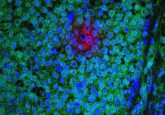Unlocking the power of the cancer genome: an interview with Phil Febbo, Illumina Inc.

In this interview, we speak with Phil Febbo, MD (Chief Medical Officer, Illumina Inc.; CA, USA) about his work on improving patient outcomes by advancing the science and application of cancer genomics. We also discuss the key challenges associated with bringing genomic sequencing into the clinic, how these can be overcome and the future of genomic testing in oncology.
- Could you introduce yourself and explain what began your interest in cancer genomics?
Cancer became the enemy after watching my maternal grandmother and a close friend succumb to the disease. Early in my oncology training, I worked to understand how genetic polymorphisms impacted an individual’s risk of cancer. While this research was helpful to explain different risks across populations, the impact of any single polymorphism on an individual’s risk was too limited to help them. Thus, I decided to ’flip the triangle’ – rather than looking at individual genetic determinants impact on a population, I would study the impact of a population of genetic variants on an individual – thus I had to study genomics.
- Illumina’s mission is to improve human health by unlocking the power of the genome. Could you explain the importance of this research?
Any individual’s health is a manifestation of their genome, coupled with dietary, lifestyle and environmental exposures. In order to help individuals understand how they can live the healthiest life possible, having accessible and actionable information about their genome will be increasingly important and, eventually, foundational. Why eventually? Currently, we are at the very beginning of understanding how an individual’s genome can be leveraged to improve health. We have very clear examples for individuals with less common, but more penetrant, inheritable risk such as with BRCA1/2, Lynch Syndrome and familial hypercholesterolemia. However, as Illumina drives down the cost of sequencing and empowers broad and deep research projects, we will build upon these early successes and provide increased benefit to individuals and guidance to help control common diseases.
- What are the main challenges of bringing genome sequencing of tumors into the clinic?
Actionability, Access and Awareness
Actionability: While there are clear examples where patients with variants in specific genes benefit from targeted agents, the full actionability of broad-based genomic testing of tumors is still in development. There have been incredible advances over the past year with pan-cancer markers like microsatellite instability and NTRK fusions, but we need to build evidence for the benefit of broad testing across cancer types.
Access: When we discuss access, we talk about ensuring there is reimbursement for the testing so that the patient does not have to take on a heavy financial burden in order to receive the benefits of genomic testing. While there are presently examples of strong reimbursement by public and private health insurers, they remain inconsistent, and for many, inadequate reimbursement to ensure broad access for patients.
Awareness: Many healthcare providers in oncology understand that cancer is a genetic disease and are using targeted therapies for patients with tumors that have specific genetic variants. However, comprehensive genomic analysis of tumors remains largely an academic activity, and a curiosity for many of the community-based physicians who take care of the more than 70% of cancer patients. Physician education that creates bridges from testing-to-outcomes is critical for adoption.
- How do you hope genomic testing might affect the frontline of cancer care?
For patients with advanced cancer, comprehensive genomic analysis will become foundational to the initial evaluation of the tumor and integral to developing a treatment plan. Already, we see the American Joint Committee on Cancer incorporating specific molecular biomarkers into cancer staging, and we will see continued progress as additional prognostic and predictive genomic variants are required for optimizing care. For Non-Small Cell Lung Cancer (NSCLC), the National Comprehensive Cancer Network supports comprehensive genomic profiling for advanced disease; increasingly we will see this type of support across cancer types. After diagnosis, genomic testing may become integrated into tumor monitoring for recurrence and progression on therapy so that treatment can become more agile and effective. Over time, we hope to see genomics move into screening and prevention so that patients are diagnosed early, before the tumor can spread.
Additionally, while most of genomic testing is focused on finding specific genomic variants that can be targeted, it will be increasingly important to know the full genomic context for those variants in order to optimize treatment. This includes the overall tumor mutational burden, as well as the presence or absence of genome wide patterns of mutations suggesting pathogenic mechanisms, such as homologous DNA repair deficiency. This global genomic view will also facilitate approaches such as bespoke immune therapies targeting a patient’s specific neoantigens to recruit the immune system into their fight against cancer.
- What do you see as the biggest areas of growth for genomics in oncology and where do you think genomic medicine will have the largest impact in the coming years?
The growth in cancer genomics will occur in multiple areas: single cell sequencing in research, screening assays in clinical development, early adoption of whole genome sequencing in the initial management of haematological malignancies, increased utilization of comprehensive genomic profiling in solid tumors, and the development of effective blood-based monitoring tests. Each of these areas are nascent but harness incredible promise to foster discovery and improve care.
- What further advances do you envisage with respect to genomic testing cancers in the next 5–10 years?
I expect that we will see key developments in cancer genomics that will foster the growth discussed above. Techniques will be developed to generate a genome from a single cell with less bias and higher quality so that single nucleotide variants and small indels can be detected. Genomic tests that detect a faint but specific signature of the presence of a tumor will begin to be available for patients for cancer screening. At the point of diagnosis, a comprehensive genomic analysis of an individual’s tumor will increasingly be a standard of care and the definition of comprehensive will eventually include whole genome sequencing. Along with sequencing DNA, the incorporation of the transcriptome in the initial evaluation of a tumor will be important to better refine our understanding of an individual’s tumor biology and prioritize therapeutic approaches. Finally, I predict that we will see monitoring tests being utilized after definitive treatment for cancer to: (1) determine risk of recurrence, and (2) detect recurrence earlier than would be possible with radiological studies. While there remains skepticism that earlier detection of cancer recurrence translates into patient benefit, more studies need to be undertaken. With the increasing diversity of cancer treatments, and the development of highly-effective treatments such as immunotherapies, I anticipate that starting these treatments when tumor burden remains low is better than waiting for the cancer to gain further momentum but future studies are required to ensure patients do benefit.
Visit the Illumina website to learn more
QB# 7409

Phillip G. Febbo is Chief Medical Officer at Illumina, Inc. For the past 25 years, Febbo has worked at leading institutions throughout the United States, most recently serving as CMO of Genomic Health (NASDAQ:GHDX). Prior to joining Genomic Health, Febbo served as Professor of Medicine and Urology at the University of California, San Francisco (UCSF; CA, USA), where his laboratory focused on using genomics to understand the biology and clinical behavior of prostate cancer, and his clinical practice focused on genitourinary oncology. While at UCSF, Febbo was the co-leader of the Prostate Cancer Program at the Helen Diller Family Comprehensive Cancer Center (CA, USA) and the Program Principal Investigator of the Translational Research Program for the Alliance for Clinical Trials in Oncology.
Febbo holds a Bachelor of Arts degree in Biology from Dartmouth College, received his M.D. degree at UCSF, and completed his internal medicine residency at the Brigham and Women’s Hospital. After his fellowship in medical oncology at the Dana-Farber Cancer Institute, he was an Attending Physician in the Genitourinary Oncology Center at Dana-Farber, Instructor at Harvard Medical School, and a post-doctoral fellow in Todd Golub’s laboratory at Dana-Farber, as well as the Whitehead Institute Center for Genomic Research of MIT (now the Broad Institute). In 2004, Febbo moved to Duke University Medical Center’s Institute of Genome Sciences and Policy. He has been a member of the American Society for Clinical Investigation since 2009. Connect with Phil on Twitter and LinkedIn.



